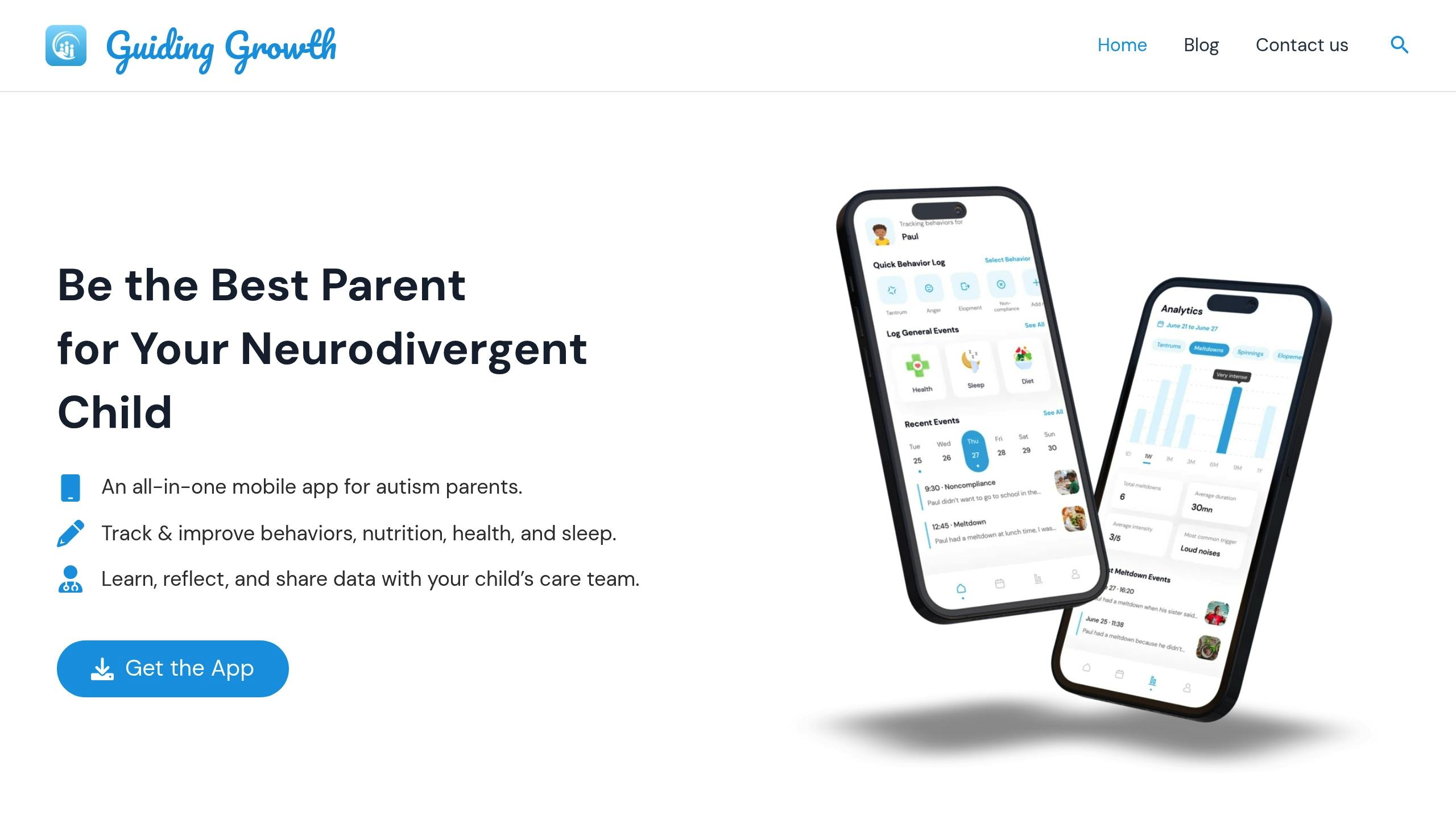Hobbies can help autistic teens discover career paths and build job skills in a natural, enjoyable way. Activities like coding, digital art, or organizing collections teach practical abilities like problem-solving, time management, and attention to detail. Here’s how hobbies connect to career growth:
- Develop Job Skills: Teens gain technical expertise, organizational skills, and more.
- Boost Confidence: Exploring hobbies builds self-assurance in their strengths.
- Early Career Planning: Hobbies reveal interests and potential career paths.
- Track Progress: Keep a portfolio of projects and monitor skill development.
- Gain Experience: Volunteer work, classes, and part-time jobs connect hobbies to real-world applications.
Finding Job Skills in Current Hobbies
Matching Hobbies to Job Skills
Hobbies can reveal job-related skills that teens naturally develop. Parents might notice abilities like problem-solving, creativity, attention to detail, or organization. For instance, working on digital projects can sharpen technical know-how, while activities like model building or collecting emphasize precision and organizational skills. These hobbies can highlight strengths and even hint at potential career paths.
Spotting Skills in Daily Activities
Everyday hobbies often showcase skills that are useful in the workplace. Here are a few examples:
- Technical Skills: Using tools or software effectively
- Organization: Setting up efficient systems
- Problem-Solving: Tackling challenges head-on
- Time Management: Planning tasks to make the most of available time
You can use tools like the Guiding Growth app to track patterns, like when they’re most focused or productive. Documenting these observations can help guide future skill-building efforts.
Recording Progress and Skills
Keeping a record of hobby-related achievements can help track growth and provide direction for further development:
-
Create a Skills Portfolio
Save a digital collection of your teen’s projects, including photos, descriptions, and notes about the skills they’ve used. This can be a helpful resource for future career planning. -
Monitor Development Patterns
Use Guiding Growth to track things like:- How often and how long they engage in activities
- Progress in specific skills over time
- Behavioral trends during different tasks
- How factors like sleep or diet affect performance
-
Share Updates with Others
Regularly discuss these insights with teachers, therapists, or family members. This collaboration ensures everyone involved understands your teen’s strengths and progress, making it easier to support their growth.
Turning Hobbies into Career Options
Building Skills with Classes and Groups
Structured learning can help turn hobbies into career-ready skills. Many community centers and libraries offer workshops and programs that focus on developing specific abilities. For example, a teen interested in digital art could explore graphic design courses.
Here are some ways to build skills:
- Community Programs: Libraries and recreation centers often run workshops in areas like coding, art, or music.
- Online Learning: Online platforms can offer structured courses.
- Local Clubs: Joining clubs or meetups can provide expert-led learning opportunities.
- Summer Programs: Camps focused on robotics, creative writing, or other areas of interest.
These experiences not only enhance skills but also provide valuable hands-on practice.
Gaining Practical Experience
Getting hands-on experience is a great way to connect hobbies with real-world applications. Start small with activities that align with your teen’s comfort level. For instance, a teen who loves organizing could volunteer to help arrange books at a library.
Here are some practical options to consider:
- Volunteer Work: Opportunities at museums, animal shelters, or community gardens.
- Job Shadowing: Short observation periods with professionals in relevant fields.
- Project-Based Learning: Home projects that mimic real-world tasks.
- Part-Time Work: Entry-level jobs that align with their interests.
These experiences give teens a chance to explore their interests while developing skills they can use in the workplace.
Tracking Progress with Guiding Growth

The Guiding Growth app helps tie hobby development to potential career paths by tracking progress in key areas. It focuses on:
- Activity Patterns: Identifying when your teen is most engaged and productive.
- Skill Development: Linking hobby skills to career-related competencies.
- Behavioral Insights: Understanding how activities impact motivation and focus.
- Collaboration Tools: Sharing progress data with teachers and counselors.
Parents can use this information to adjust their support and discover new career-building opportunities tailored to their teen’s strengths.
Managing Career Preparation Challenges
Practicing Social Skills Through Hobbies
Group hobbies can be a great way for autistic teens to build social skills that are useful in the workplace. When teens take part in activities they enjoy, they often feel more at ease practicing communication and teamwork.
Take a robotics team, for example. A teen involved in such a group can work on technical communication, collaboration, problem-solving, and time management – all in a fun, engaging setting.
Parents can assist by starting with small, structured group activities, rehearsing social scenarios beforehand, and gradually increasing the level of interaction. A strong network of support can make these experiences even more rewarding.
Setting Up Support Systems
Building a reliable support system can help autistic teens navigate career preparation more effectively. This network should include people who understand their interests and challenges.
Here are some ways to create this support system:
-
Professional Support
- Work with occupational therapists to explore workplace accommodations.
- Collaborate with school counselors to plan career paths.
-
Community Support
- Join hobby-based groups that are welcoming to neurodivergent members.
- Connect with other parents through local autism support organizations.
The Guiding Growth app can also be a helpful tool for tracking daily observations, sharing progress with professionals, and documenting communication strategies. A well-coordinated support network not only strengthens social skills but also simplifies career planning for autistic teens.
sbb-itb-d549f5b
How to Turn Your Special Interest Into A Career
Making a Career Plan
Once skills are sharpened and progress is tracked, it’s time to map out clear career goals.
Choosing Career Goals
Turn hobbies and strengths into career possibilities through careful planning. Start by listing your teen’s interests, talents, and skills they’ve developed. Then, identify specific jobs where these skills can shine. For instance, if your teen loves creating digital art, they could explore paths like graphic design, user interface design, animation, or digital marketing. Many autistic individuals thrive in roles that require attention to detail and deep focus, so it’s important to match their natural abilities with career options that suit them.
Adding Career Goals to IEPs
Take the achievements rooted in hobbies and incorporate them into your teen’s Individualized Education Program (IEP). This ensures their education aligns with their career ambitions. Work with the IEP team to set clear objectives that prepare them for future work, such as:
- Skill-building targets
- Goals for gaining work experience
- Social skills development
- Academic coursework that supports career paths.
Updating Plans as Needed
Career plans should adapt as interests and abilities evolve. Regular reviews can keep the plan relevant and engaging. Here’s how to approach it:
- Quarterly progress reviews: Use the Guiding Growth app to check progress during scheduled reviews.
- Annual career assessments: Revisit goals, interests, and skills while keeping an eye on IEP progress.
- Team collaboration: Stay connected with family, caregivers, and professionals to share updates and coordinate support.
Conclusion
Hobbies can open doors to career opportunities by tapping into the natural strengths of autistic teens. Keeping a close eye on their progress helps turn observations into actionable steps for career growth. Moving from a hobby to a career takes ongoing tracking and support. Tools like Guiding Growth simplify this process by allowing parents to monitor progress and uncover patterns in their teen’s interests. The app’s tracking features highlight how daily routines influence engagement and skill-building.
Collaboration plays a key role in making these strategies work. When parents, educators, and healthcare providers share data and insights, they can create a stronger support system for autistic teens. With the help of real-time information from Guiding Growth, everyone involved can work together more effectively to turn hobbies into meaningful opportunities.
Career development is a continuous process that grows alongside your teen’s interests and skills. By keeping detailed records, staying open to new goals, and offering steady support, you can help your autistic teen explore career paths that celebrate their unique abilities. This combination of consistent guidance and thoughtful planning ensures that their opportunities grow as they do.


